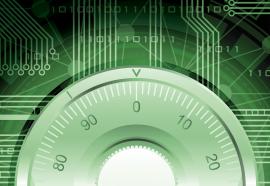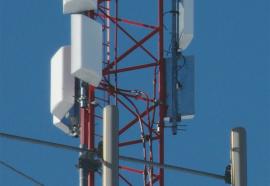Smart meters
Opting Out
Providing reasonable options for customers who object to smart meters.
Customers in some markets are demanding the right to opt out of smart meter deployments. Their concerns involve radio frequency (RF) emissions and potential privacy breaches. Whether these concerns are valid or not, some regulators are requiring options for customers who don’t want smart meters. The right approach can satisfy concerns without undue costs and complexities.
Securing Tomorrow's Grid (Part I)
Protecting smart systems against cyber threats.
Smart grid technologies bring a host of cyber security considerations that need to be addressed throughout the T&D domain—and even into the customer’s home. In this exclusive report, Department of Energy authors team up with industry experts to examine how to deal with the changes and challenges of securing the smart grid.
Smart Grid in America and Europe (Part II)
Past accomplishments and future plans.
Policy makers in the E.U. and the United States are taking different approaches to facilitating smart grid development. While both regions are setting standards that the rest of the world likely will follow, they also face difficult challenges in resolving issues around cost recovery, customer engagement and workforce preparedness.
What Happened in Texas
Evaluating smart meters and public backlash.
After ratepayers brought a class-action lawsuit against distribution utilities, Texas regulators commissioned a study of the state’s new smart meters. The study explains why customers reacted the way they did, and offers insights into how the industry can avoid a Texas-style backlash.
Efficiency Close-Up
Setting the stage for conservation.
America’s electric utilities understand their central role in taking efficiency and conservation to the next level. Accordingly, the industry has nearly doubled its spending on efficiency measures in the past few years. But encouraging customers to save energy won’t be enough to keep pace with the electricity demands of a growing digital economy. The country’s efficiency efforts will be most effective as part of a clean energy portfolio strategy.
Getting Engaged
How to avoid a Texas-style backlash.
Is customer engagement more about damage control, or helping customers understand their options?
OMG Opportunity?
Electrifying the Android generation.
Those who don’t embrace new technologies will get left behind when the world changes around them. This is true across generations and across industries. At the same time, however, the telecom revolution offers a cautionary lesson about what motivates consumers and how it translates into business opportunities.
Smart-Grid Strategy: Why Wireless?
Radio waves deliver flexibility and security.
The concept of a wireless smart grid is gaining popularity. Some utilities are participating in pilots providing two-way secure radio frequency network coverage. They say the grid is well suited to wireless and the benefits only now are becoming known.
Smart-Grid Strategy: Quantifying Benefits
Modeling the value of various technologies and applications.
As utilities announce new smart-grid programs, they need a strategic method for quantifying benefits. Analytical models generate baseline benefit estimates and reveal big-picture trends. Decision makers need the best resources available to mitigate risks in choosing a smart-grid strategy.










